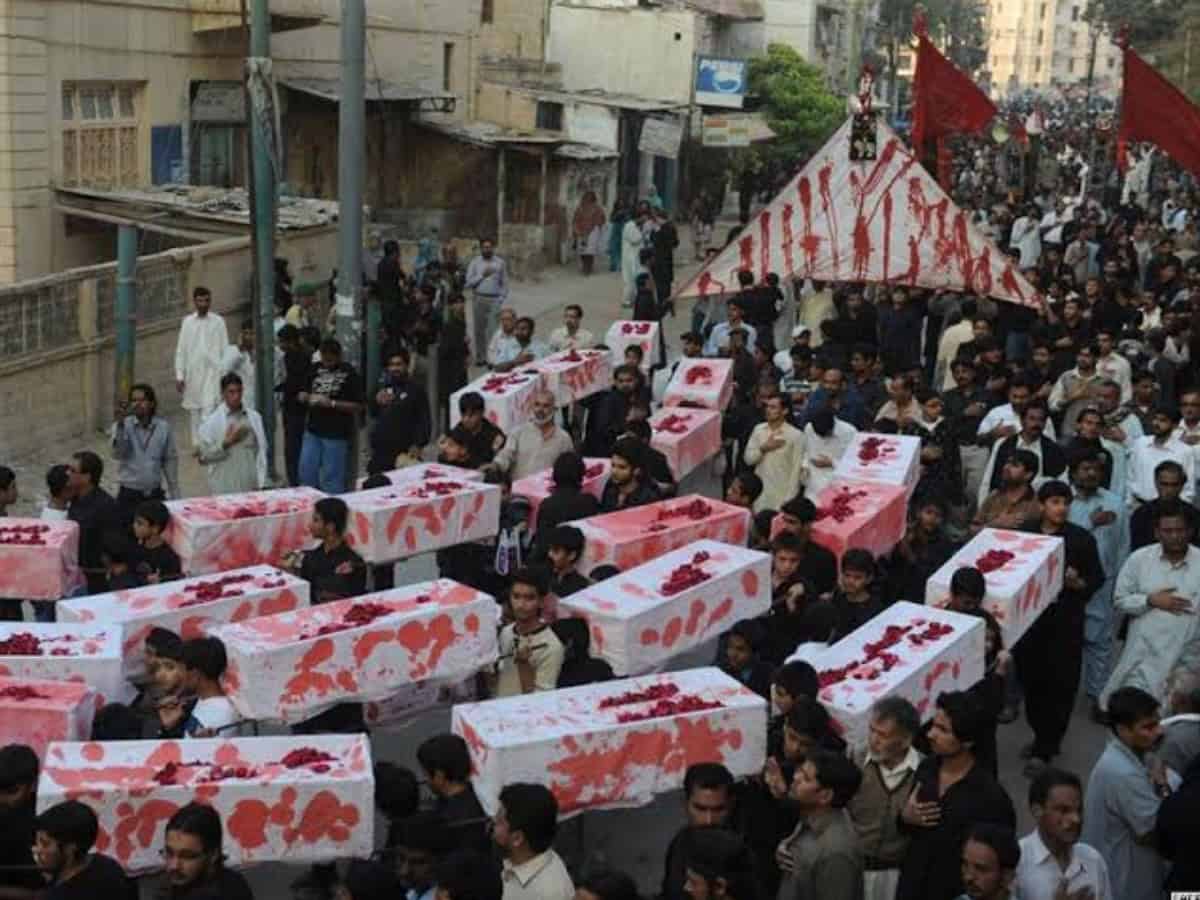
Parachinar town nestled in the picturesque, mountainous border area of Pakistan has long been a flashpoint for rivalry and sectarian violence between Sunni and Shia Muslim communities. The town which is predominantly a Shia region has once again witnessed a surge of violence that threatens not only local stability but also the broader peace of Pakistan.
Historical context of sectarian violence in Parachinar
The roots of the sectarian strife in Parachinar date back several decades, exacerbated by many economic, social and political factors.
During the late 20th century, the rise of hardline Sunni sect groups, particularly under General Zia-ul-Haq’s regime laid the groundwork for deepening sectarian divides.
It is pertinent to mention here that, Muhammad Zia-ul-Haq was a Pakistani military officer who served as the sixth president of Pakistan from 1978 until his death. He also served as the second Chief of Army Staff of the Pakistan Army from 1 March 1976.
The Shia community members in the region believe that many government policies favour Sunni sect Muslims. The subsequent militarization of sectarian identities added fuel to hostility towards Shia communities, who have historically been targeted and faced discrimination and violence in the country.
According to the reports, it is estimated that thousands of Shia Muslims were killed in sectarian attacks from 1987 to 2007, with the prejudice and violence often fueled by extremist ideologies and geopolitical dynamics, such as Tehrik-e-Taliban Pakistan (TTP) and ISIS which is a terrorist organisation who are mostly anti-Shia.
Pertinently, Parachinar is a mountainous area that shares a long border with Afghanistan in the northwestern province of Khyber Pakhtunkhwa. The region has faced frequent attacks by TTP and other armed groups targeting the Shia community.
It is reported that TTP has been a major contributor to the recent sectarian violence in the region.
The militant group’s aim is to overthrow the government of Pakistan by waging a terrorist campaign against the Pakistan armed forces and the state considers Shias as “apostates”.
The influx of weapons and radical ideologies has left a lasting impact on the region, making Parachinar a battleground for sectarian conflict.
Recent escalation of violence
In recent months, the situation in Parachinar deteriorated significantly with clashes between the Sunni Boshehra tribe and the Shia Boshehra tribe resulting in numerous horrific casualties.
The violence intensified on the evening of July 24 following a land dispute that sparked tribal fighting and took shape into broader sectarian clashes and quickly spread to other areas, including Peewar, Tangi, Balishkhel, Khaar Kalay, Maqbal, Kunj Alizai, Para Chamkani, and Karman.
According to the Dawn, 46 have been killed and hundreds sustained severe injuries with both sides employing heavy weaponry.
Residents said rivals were using heavy and sophisticated weapons, including mortar shells and rocket launchers, against each other. They said that mortar and rocket shells were also fired on Parachinar and Sadda, the main cities in the Kurram tribal district.
However, in this rival fight, the Shia community has suffered more, with a significant number of fatalities among their ranks.
Heavy contingents of police and security forces were deployed in the affected areas. All educational institutions and markets were closed and traffic on main roads remained suspended.
The Pakistani military attempted to restore order but had been largely ineffective.
Reacting to the ensuing bloodshed in the region, KP Governor Faisal Karim Kundi stated that the tragic losses occurred due to “governance failure”. “Recently addressed the Kurram Agency crisis, where tragic losses are mischaracterised as a Shia-Sunni conflict,” he wrote on the X platform.
Rights group voices concern
The Human Rights Commission of Pakistan (HRCP) expressed grave concern over the sectarian conflict and the “significant loss of life in Parachinar, Kurram”. The group flagged concern over the disruption of access to essential services, including food and medical care, exacerbating the plight of residents.
“HRCP is deeply concerned at the significant loss of life in #Parachinar, Kurram, where rival tribes have engaged in a violent land dispute for several days, fueling sectarian conflict. The violence has taken a heavy toll on ordinary citizens, whose freedom of movement and access to food and medical supplies has been curtailed,” it posted on X.
HRCP further called on the KP government to ensure a ceasefire in the region.
“All disputes, whether over land or born of sectarian conflict, must be resolved peacefully through negotiations convened by the KP government with all stakeholders represented,” it added.
Subsequently, KP Cheif Minister Ali Amin Gandapur took notice of the deadly clashes and ordered police to play an effective role in the cease-fire between the parties
“The district administration and the police should play an effective role in the ceasefire between the parties, and no one shall be allowed to take the law into their hands and ruin the area’s peace,” the statement quoted Ali Amin as saying.
Traditional conflict resolution mechanisms, such as jirgas (tribal councils) in the region had also been suggested as potential avenues for dialogue.
Ceasefire agreement in Parachinar
After a week of fatal clashes between the two rival tribes, hostilities have now agreed upon a temporary case agreement following a meeting between local authorities and tribal elders, a grand jirga in the Parachinar region.
The leaders along with civilian and security officials held an hours-long meeting on Wednesday, July 31 after which a ceasefire was agreed upon by all stakeholders – until October 5.
Speaking on the development, the deputy commissioner of Kurram, Javedullah Mehsud said there had been no casualties since the ceasefire was agreed upon. He said that the government was confident of resolving to end the conflict, expressing hope for a resolution to the underlying land disputes that have fueled the violence.
“This is unfortunately an ongoing land dispute in the area that has led to fighting in the past as well, but we are confident that we can put an end to it this time,” Mehsud told Al Jazeera.
